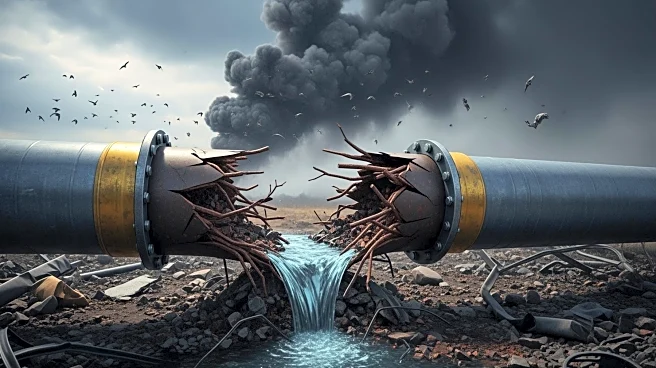What's Happening?
Russian military operations in Ukraine have escalated, resulting in the deaths of eight civilians and injuries to 67 others over the past day. The attacks targeted multiple regions, including Kherson, Kyiv, Dnipropetrovsk, Donetsk, and Kharkiv Oblasts.
Russia launched nine Iskander-M ballistic missiles and 62 Shahed-type drones, with Ukraine's air defenses managing to destroy 50 drones and four missiles. However, several missiles and drones hit key locations, causing significant damage to civilian areas and energy infrastructure. The attacks have left thousands without power, exacerbating the strain on Ukraine's energy sector amid increasing demand due to cold weather.
Why It's Important?
The intensification of Russian attacks on Ukraine's energy infrastructure poses a severe threat to the country's ability to maintain power supply during the cold season. This strategy not only aims to weaken Ukraine's resilience but also terrorizes civilians by leveraging harsh weather conditions. The ongoing conflict continues to destabilize the region, with potential implications for international energy markets and geopolitical relations. The humanitarian impact is profound, as civilians face increased risks and hardships due to disrupted services and infrastructure.
What's Next?
Ukraine is likely to continue strengthening its air defense systems to mitigate the impact of Russian missile and drone attacks. International pressure on Russia to cease hostilities may increase, with potential diplomatic interventions from global powers. Humanitarian aid and support for Ukraine's energy sector may be prioritized to alleviate the immediate challenges faced by civilians. The conflict's progression will be closely monitored by international observers, with potential implications for future peace negotiations.
Beyond the Headlines
The attacks highlight the ethical and legal challenges in warfare, particularly concerning the targeting of civilian infrastructure. The use of energy as a weapon underscores the broader implications of conflict on global energy security and the need for robust international frameworks to protect civilian populations. Long-term shifts in regional alliances and energy policies may emerge as countries reassess their positions in response to the ongoing conflict.














